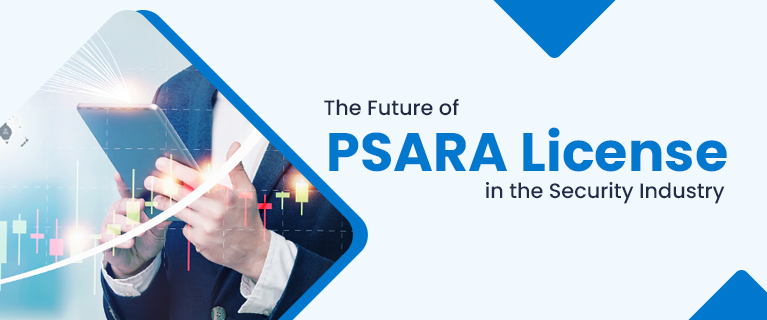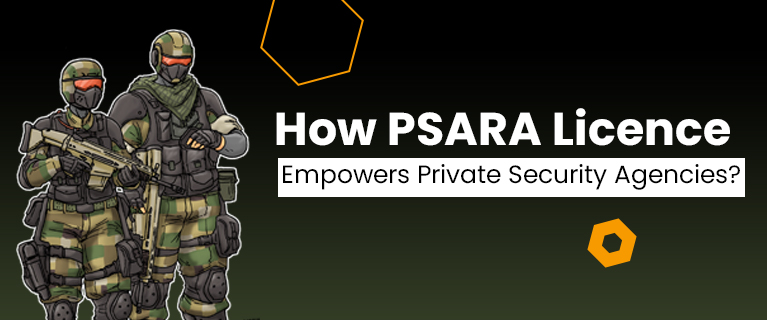Demystifying the PSARA Security License
The Private Security Agencies Regulation Act (PSARA) in India mandates the regulation and oversight of private security agencies to ensure the safety and security of individuals and property. The PSARA Security License is a crucial component of this regulatory framework, and it plays a significant role in ensuring compliance with the law. Here's how the PSARA Security License ensures compliance:
1. Regulatory Approval: Obtaining a PSARA Security License requires private security agencies to undergo a thorough evaluation and approval process by the respective state's regulatory authority. This process involves scrutinizing the agency's credentials, background checks of key personnel, and verifying its compliance with eligibility criteria.
Read also this -: How to Apply Online for a PSARA License2. Background Checks: Before granting a PSARA Security License, regulatory authorities conduct background checks on the agency's directors, partners, and key managerial personnel. This ensures that individuals involved in the agency do not have criminal records or connections that could compromise security.
3. Training and Qualification: PSARA mandates that private security personnel undergo proper training and certification. To maintain compliance, security agencies must ensure that their employees receive appropriate training in areas such as security procedures, first aid, and customer service. Licensed security personnel are expected to demonstrate competence in their roles.
4. Code of Conduct: Private security agencies with a PSARA Security License must adhere to a prescribed code of conduct. This includes guidelines for how security personnel interact with clients, handle emergencies, and maintain professionalism at all times.
5. Service Standards: Compliance with PSARA ensures that security agencies provide services that meet established standards. This includes maintaining a certain level of competence, reliability, and professionalism in their security operations.
6. Regular Audits: Regulatory authorities periodically conduct audits and inspections of licensed security agencies to ensure ongoing compliance. These audits assess whether the agency is adhering to PSARA regulations, following the code of conduct, and maintaining the required standards.
7. Accountability and Reporting: Licensed security agencies are required to maintain proper records, including details of security personnel, training records, and client contracts. This ensures transparency, accountability, and helps regulatory authorities monitor compliance.
8. Liability and Legal Protection: Operating without a valid PSARA Security License is illegal and can lead to legal consequences. By obtaining the license, security agencies protect themselves from legal actions and penalties that could arise from non-compliance.
9. Client Confidence: Clients seeking security services often prioritize agencies with a valid PSARA Security License. Holding the license demonstrates that the agency is recognized by regulatory authorities and has met the necessary criteria for competence and compliance.
10. Public Safety: Ultimately, the PSARA Security License contributes to public safety by ensuring that security services are provided by trained and qualified personnel who adhere to legal and ethical standards. This enhances public trust in the private security industry.
In summary, the PSARA Security License plays a pivotal role in regulating and standardizing the private security industry. It ensures that security agencies operate within a legal framework, maintain high service standards, and prioritize the safety and security of their clients and the public.
Furthermore, the PSARA (Private Security Agencies Regulation Act) Security License serves as a cornerstone in establishing a professional and accountable private security sector. This license encapsulates a comprehensive framework that governs the functioning of security agencies and guards, safeguarding not only the interests of clients but also the rights and well-being of security personnel.
One of the primary advantages of the PSARA Security License is its role in weeding out unscrupulous and unauthorized security operators from the industry. By imposing strict eligibility criteria and mandatory background checks, the license ensures that only legitimate and trustworthy agencies are granted the authority to operate. This not only enhances the credibility of the industry but also instills a sense of confidence in clients seeking security solutions.
Moreover, the license requires security agencies to adhere to specific operational standards and guidelines. This includes maintaining a certain ratio of guards to clients, providing appropriate training to security personnel, and employing effective security measures. By imposing these standards, the license contributes to raising the overall quality of security services offered in the market.
Read also this -: Benefits of Acquiring a PSARA LicenseThe PSARA Security License also facilitates a regulatory mechanism that allows authorities to monitor and inspect security agencies regularly. This oversight ensures that agencies maintain their compliance with the established norms and that they continuously strive to uphold service excellence. Any deviations or non-compliance can lead to penalties or even revocation of the license, reinforcing the importance of adherence to regulations.
Conclusion
The PSARA Security License not only fosters a sense of professionalism and accountability within the private security industry but also upholds the broader objective of ensuring public safety. By establishing a legal framework, setting operational standards, and providing regulatory oversight, this license plays an indispensable role in shaping a secure and well-regulated environment for both security agencies and the communities they serve.




Comments
Post a Comment